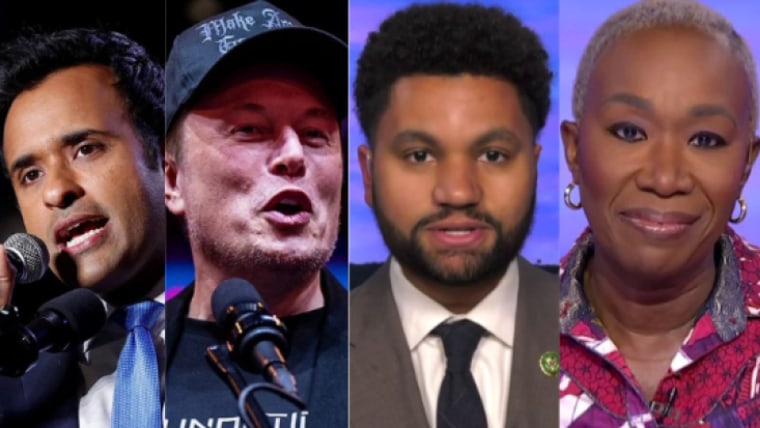It was exactly three months ago when Donald Trump delivered a new campaign pledge: If elected to a second term, the Republican said, he’d appoint conspiratorial billionaire Elon Musk to lead some kind of government “efficiency” panel, which would focus on slashing federal investments.
To hear the then-candidate tell it, the endeavor would work miracles: The Musk-led commission, Trump boasted, would save taxpayers “trillions of dollars,” and implement “an action plan to totally eliminate fraud and improper payments within six months.”
None of this made any sense — in part because Musk lacked any meaningful experience in auditing, federal budgeting, or appropriations, and in part because cutting “trillions” from the federal budget is spectacularly unrealistic. For that matter, why Trump believed Musk would be able to “totally eliminate” fraud — within six months, no less — was something of a mystery.
Nevertheless, the GOP ticket prevailed, and the president-elect launched the Department of Government Efficiency (DOGE), to be led by Musk and failed White House hopeful Vivek Ramaswamy. The New York Times reported that the duo arrived on Capitol Hill “for a series of sitdowns with lawmakers that culminated in an afternoon session open to all congressional Republicans.”
Mr. Musk and Mr. Ramaswamy each delivered roughly a minute of introductory remarks, as if to show off their talent for streamlining in a roomful of officials known for long-windedness. They disclosed little in the way of their plans for where to find spending cuts, according to those who attended the closed-door meeting, instead emphasizing how badly both the government and its $36 trillion debt had ballooned.
That was, of course, an odd message to deliver to a group of congressional Republicans who (a) made the debt vastly worse; and (b) are eager to approve massive tax breaks without paying for them.
Nevertheless, there’s been an enormous amount of hype surrounding the DOGE endeavor, and as The Washington Post reported, members of Congress — many of whom realize that Musk has Trump’s ear — “are eagerly signing up for the hottest new ticket on Capitol Hill” and “jockeying to be involved in the new commission.”
Perhaps now would be a good time to start lowering expectations.
It’s an inconvenient detail, to be sure, but there’s no reason to assume that Musk and Ramaswamy have any idea what they’re doing, their private-sector successes notwithstanding. Republican Sen. Thom Tillis of North Carolina, for example, is a member of the Senate DOGE working group, but he conceded that the wealthy duo leading the initiative need a little bit of “School House Rock” and haven’t yet learned “political realities.”
Punchbowl News’ Jake Sherman, an MSNBC contributor, spoke to a senior Republican aide this week who described Musk and Ramaswamy as “two people who know nothing about how the government works pretending they can cut a trillion dollars.” The same aide predicted that the entire endeavor will likely end in “disaster.”
Making matters worse is that the leaders of the DOGE panel don’t actually have any bureaucratic power. Even the name is a misnomer of sorts: A casual person might see the word “department” and think this is an actual governmental agency with some kind of authority.
That assumption would be wrong. This is an advisory panel. It has about as much power to cut federal spending as you and I do. (DOGE, incidentally, appears to have been named after a cryptocurrency the world’s wealthiest man likes.)
Even if Musk and Ramaswamy believe they’ve uncovered all kinds of federal investments that deserve to be scrapped — a dubious proposition given their lack of familiarity with the subject matter — the best they could do is come up with some kind of memo filled with suggestions. It would still fall to Congress — the institution that still has the power of the purse — to make appropriations decisions as members see fit.
My point, to be clear, is not to downplay the goals of such an initiative. If anyone has credible ideas about eliminating government waste, they should be encouraged to promote their discoveries and ask lawmakers to follow suit. Similarly, I applaud those with worthwhile recommendations about making the government more efficient and effective.
But there have been a variety of commissions, committees, and panels along these lines over the years, and the results tend to be underwhelming. It’s among the reasons it’s probably best not to expect DOGE-related miracles anytime soon.

